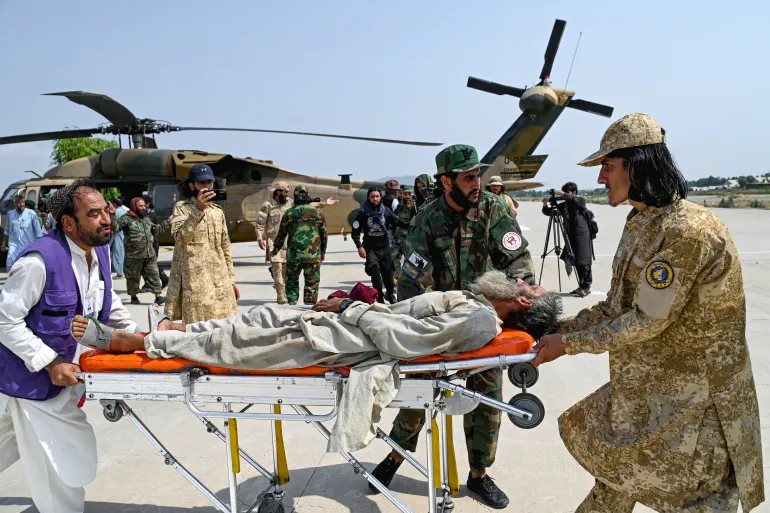Afghanistan Earthquake Kills 800+ in Kunar, Nangarhar

Related Articles
A 6.1 earthquake in eastern Afghanistan killed 800+ and injured 2,800 in Kunar and Nangarhar as rescue teams race to find survivors.
Emergency Response Underway
The tremor struck just before midnight on Sunday, shaking remote villages where homes are mostly made of mud and stone, making them highly vulnerable.
- Helicopters are transporting the injured to hospitals.
- The Ministry of Defence has deployed 30 doctors and delivered 800kg of medical supplies to the disaster zone.
- Over 40 flights have already carried both wounded and deceased victims.
Government spokesman Zabihullah Mujahid confirmed the rising toll, stressing that more resources are urgently needed in the quake-hit areas.
Survivor Stories
Residents describe terrifying moments as roofs and walls collapsed around them.
- Sadiqullah, from Nurgal district in Kunar, said he managed to rescue three of his children but lost his wife and two sons.
- Many families were trapped under debris for hours before help arrived from neighboring villages.
Such stories highlight the vulnerability of Afghanistan’s rural communities, where earthquakes often leave devastating impacts due to weak infrastructure.
Why the Quake Was So Deadly
Experts explain that the shallow depth of the quake made it especially destructive. Combined with the region’s mountainous terrain, the shaking triggered landslides, cutting off villages and making rescue operations harder.
Afghanistan lies near the Indian and Eurasian tectonic plates, making it one of the world’s most earthquake-prone regions. A 2023 quake in the west of the country killed more than 2,000 people.
International Aid and Solidarity
The United Nations said its teams are on the ground delivering lifesaving support. Neighboring countries and allies have also offered help:
- Iran pledged humanitarian and medical assistance.
- China expressed readiness to provide relief supplies.
- Global organizations have called for urgent international donations to prevent a larger humanitarian crisis.
A Nation Already in Crisis
The earthquake comes at a time when Afghanistan faces severe poverty, declining humanitarian aid, and the forced return of thousands of Afghan refugees from neighboring countries. This disaster will likely deepen the challenges of an already struggling nation.
Outlook
Rescue efforts are ongoing, but authorities warn that aftershocks remain a major threat. Rebuilding the affected villages will take months, if not years. For survivors, immediate priorities are shelter, medical care, and food supplies.









